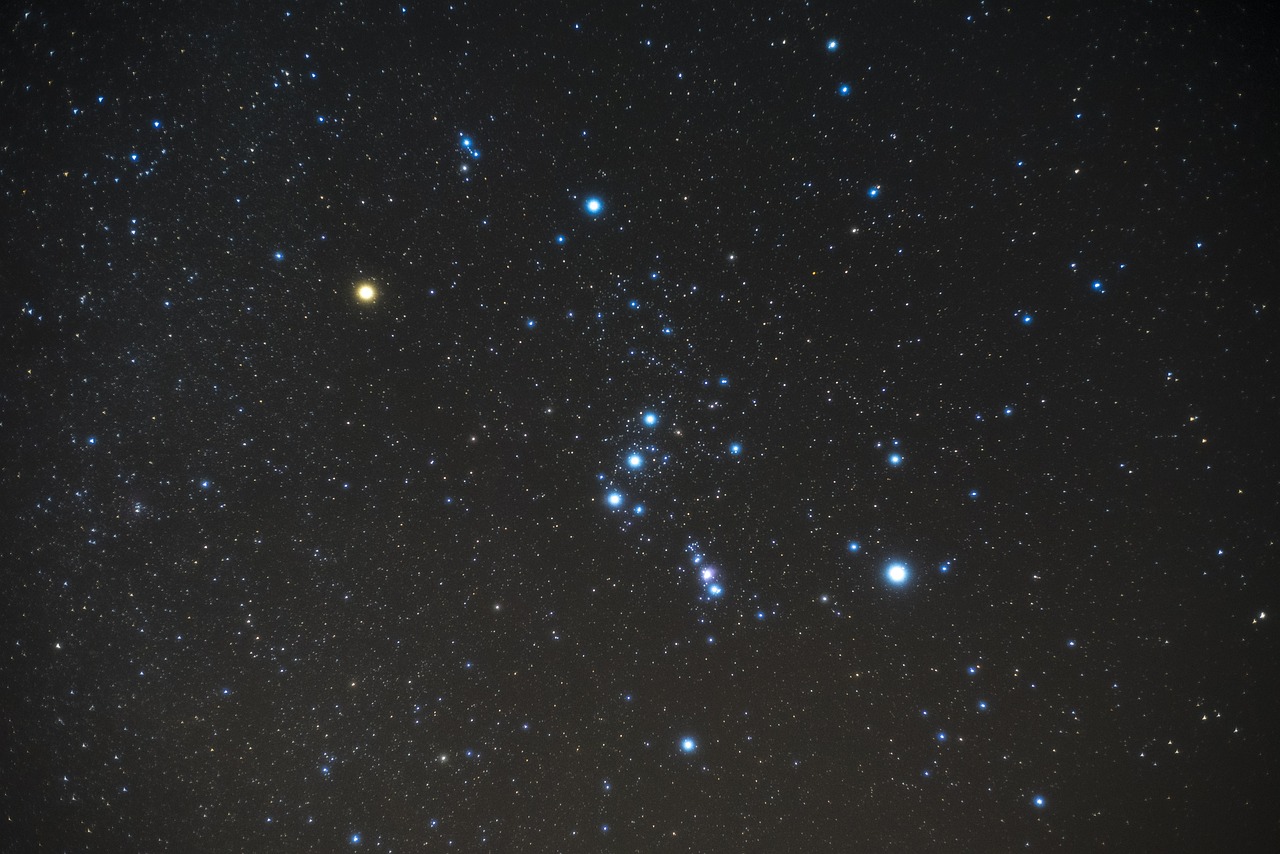Nationale Meetactie | Sterren Tellen
Duisternis is een ‘oerkwaliteit’ van leven en van belang voor mens en natuur: daar moeten we zuinig op zijn. Onderzoek, ook aan de Rijksuniversiteit Groningen, duidt erop dat het verdwijnen van duisternis nadelige gevolgen heeft. Maar hoe donker is het eigenlijk nog? De RUG heeft in het kader van het programma ‘Donkerte van de Wadden’ een duisternis-meetnetwerk, “maar we kunnen niet overal meten,” aldus ‘duisternisbewaker’ Theo Jurriens. Het publiek kan daarom meehelpen tijdens de nationale meetactie sterren tellen.
Wanneer?
De metingen moeten plaatsvinden in de periode 1 februari tot en met 14 februari en 1 maart tot en met 14 maart vanaf 8 uur ‘s avonds. Dat heeft alles te maken met de stand van de maan: metingen worden gedaan als de maan onder de horizon is. Wanneer het bewolkt is, slecht weer, of de maan boven de horizon staat hebben de metingen geen zin.
Orion
Het sterrenbeeld Orion staat centraal in de meetactie. Iedereen kan aan de meetactie meedoen door het tellen van de sterren in dit goed herkenbare sterrenbeeld. Het stappenplan is als volgt: ga naar buiten (na 8 uur ’s avonds) en zoek het sterrenbeeld Orion. Wacht een kwartier, de ogen moeten namelijk aan het donker wennen. De vier hoeksterren van Orion vormen een rechthoek: tel het aantal sterren binnen deze rechthoek. Doe de telling meerdere keren achtereen en geef de gemiddelde waarde door. Metingen kunnen worden doorgegeven via visitwadden.nl/sterrentellen, waar de meetgegevens ook zichtbaar worden op de kaart. Op deze website staat tevens een handleiding met meer uitleg.

Eerdere meetacties
In 2021 viel de meetactie in het water: te veel bewolking en daardoor vrijwel geen metingen. In 2022 deed vrijwel heel Nederland mee met ruim 600 tellers. 2023 was ook niet goed “teljaar” door de weersomstandigheden. We hopen op helder weer dit jaar!
Conferentie
De Rijksuniversiteit Groningen is gastheer van ‘EURODARK’ een internationale conferentie over lichtvervuiling die plaatsvindt van 14 t/m 16 maart in het Drentse Paterswolde. De resultaten van de meetactie worden daar ook gepresenteerd.
Sterrenkijkdagen
Dit jaar is de sterrentelling ook een mooi “voorafje” van de nationale sterrrenkijkdagen: 15 t/m 17 maart. Op veel plekken in Nederland staan telescopen opgesteld, een prachtige gelegenheid om van de sterrenhemel te genieten.
Donkerte van de Wadden
Donkerte van de Wadden, een initiatief van de Natuur- en Milieufederaties Noord-Holland, Friesland en Groningen, de Rijksuniversiteit Groningen, Natuurmonumenten en Staatsbosbeheer, heeft als doel bewoners en bezoekers de duisternis van het Waddengebied te laten ervaren en bewust te laten worden van het belang van de duisternis, bijvoorbeeld met de Nacht van het Wad.
Meer informatie
Meer nieuws
-
17 februari 2026
De lange zoektocht naar nieuwe fysica
-
10 februari 2026
Waarom slechts een klein aantal planeten geschikt is voor leven
